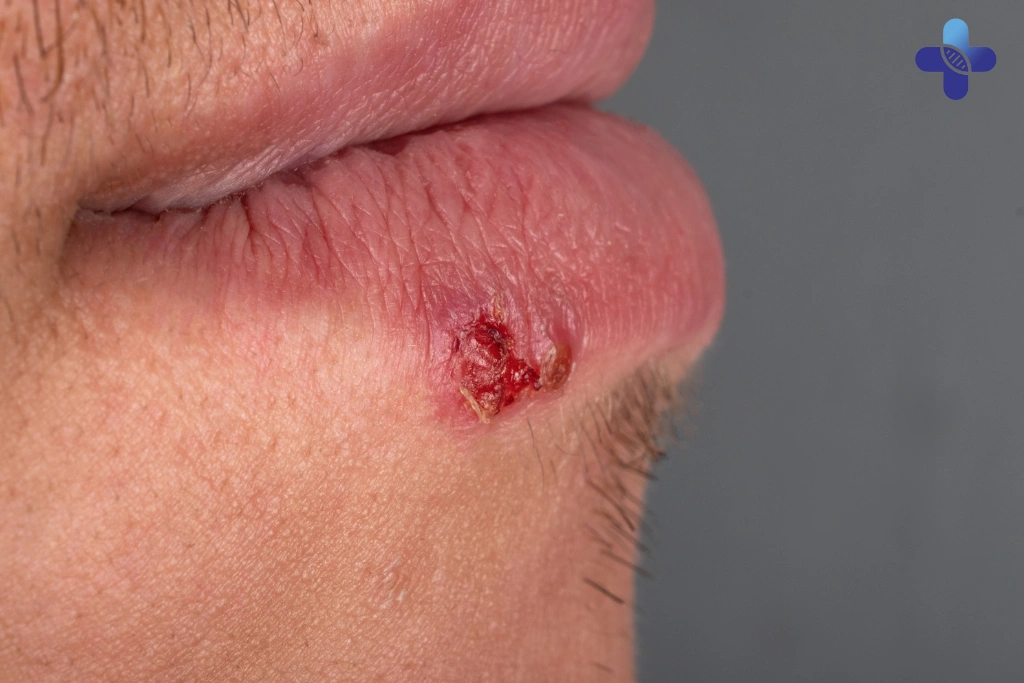Experiencing painful urination while in Bali? While many might immediately attribute this discomfort to a urinary tract infection (UTI), it could actually be a sign of something more serious, like a sexually transmitted disease (STD). In Bali’s tropical climate, where health issues related to hydration and hygiene can be common, it’s important not to jump to conclusions. If you’re feeling persistent discomfort or notice any other unusual symptoms, seeking medical advice is crucial to accurately diagnose the cause and ensure you receive the right treatment.

Painful Urination Isn’t Always a UTI—Could It Be an STD?
Painful urination is often linked to urinary tract infections (UTIs), and many people immediately assume this is the cause. However, it’s important to recognize that painful urination can also be a symptom of something more serious, such as a sexually transmitted disease (STD). Conditions like gonorrhea, chlamydia, and herpes can all lead to similar discomfort, making it essential to consider all possibilities. In Bali, where tropical conditions can sometimes exacerbate health issues, it’s crucial to address any persistent pain and seek medical advice to ensure an accurate diagnosis and timely treatment.
While UTIs are common and typically respond to basic treatments, STDs may require more specific care. If you’re in Bali and experiencing persistent painful urination, it’s vital not to assume it’s just a simple infection. Recognizing the potential for an STD and seeking medical attention can prevent further complications. This article will help you distinguish between UTI and STD symptoms, offering guidance on when to get tested and how to approach treatment for the best possible health outcomes.
What Causes Painful Urination?
Painful urination is commonly linked to UTIs, but several other factors can cause this symptom. Here are the main culprits:
Urinary Tract Infections (UTIs)
Urinary tract infections (UTIs) are the most common cause of painful urination, particularly among women due to their shorter urethras. UTIs occur when bacteria enter the urinary tract and cause an infection, leading to symptoms like a burning sensation during urination, frequent urges to urinate, and cloudy or foul-smelling urine. In more severe cases, the infection can spread to the kidneys, causing additional symptoms such as fever, chills, and back pain. Although UTIs are generally treatable with antibiotics, ignoring the symptoms can lead to complications and persistent discomfort. It’s important to seek medical attention if you suspect a UTI, especially if the symptoms don’t resolve quickly with over-the-counter treatments.
Sexually Transmitted Diseases (STDs)
While UTIs are a common cause of painful urination, sexually transmitted diseases (STDs) should also be considered, particularly if you’ve had unprotected sex. Gonorrhea, chlamydia, and herpes are STDs that can cause similar symptoms to a UTI, including painful urination. However, STDs may present additional signs, such as abnormal genital discharge, sores or blisters in the genital area, itching, or pain during sexual intercourse. Unlike UTIs, STDs often don’t improve with over-the-counter treatments and can persist or worsen without proper care. Therefore, it’s essential to get tested and treated by a healthcare provider if you suspect an STD, as early intervention can help prevent long-term health complications.
To learn more about the common Sexually Transmitted Diseases in Bali and how to protect yourself, read our detailed guide on STDs in Bali.
Chemical Irritation
Sometimes, the cause of painful urination can be traced back to irritation from external chemicals rather than an infection. Products like harsh soaps, bubble baths, feminine hygiene sprays, or spermicides can disrupt the natural balance of bacteria in the genital area, leading to inflammation and discomfort during urination. These chemicals can irritate the sensitive tissues of the urethra and vagina, causing symptoms similar to a UTI. If you suspect chemical irritation is the cause, try switching to milder, fragrance-free products and avoid douching or using other irritants. If the symptoms persist, consult a doctor to rule out other underlying causes.
Poor Hygiene
Inadequate hygiene practices can also contribute to painful urination. For example, wiping from back to front instead of front to back after using the toilet can transfer bacteria from the rectum to the urethra, increasing the risk of infections. Additionally, wearing tight-fitting clothing or synthetic underwear can create a warm, damp environment that promotes bacterial growth. Regularly cleaning the genital area with mild soap and water, changing underwear frequently, and ensuring proper wiping techniques can significantly reduce the risk of irritation and infection. If poor hygiene leads to painful urination, a simple adjustment to daily hygiene routines may alleviate the discomfort, but if the problem persists, a medical evaluation is recommended.
How STD-Related Pain Differs from a UTI
Location and Duration of Pain
The location and duration of pain can be a key differentiator between a UTI and an STD. With a UTI, the pain is usually concentrated in the lower abdomen or bladder area. It typically starts as a mild discomfort but can worsen over time, especially when urinating. In some cases, the pain may radiate to the lower back or pelvic region, and it can last for several days if left untreated. On the other hand, STD-related pain tends to be more localized around the urethra or the genital area. This pain may be sharp or burning, and it often occurs during or immediately after urination. The pain from STDs can also last longer, especially if the infection is not addressed, and might intensify when engaging in sexual activity or other activities that put pressure on the genital area.
Additional Symptoms
Both UTIs and STDs can cause painful urination, but they are usually accompanied by distinct additional symptoms. In the case of a UTI, you are more likely to experience symptoms such as cloudy urine, a strong odor, and increased frequency of urination—often with little to no relief between bathroom visits. You may also feel a sense of urgency, where it feels like you need to urinate constantly, even if only a small amount comes out. In contrast, STDs often involve other signs that aren’t typically seen with UTIs. You might notice genital sores, itching, or an unusual discharge that may be green, yellow, or white in color. These symptoms are more specific to STDs like gonorrhea and chlamydia. For herpes infections, you might also experience small blisters or painful ulcers around the genital or anal areas.
Fever
Fever is another important factor that can help differentiate between a UTI and an STD. A UTI is often accompanied by a fever, particularly if the infection has spread to the kidneys (a condition known as pyelonephritis). The fever may come with chills, body aches, and general fatigue, signaling a more severe infection that requires immediate medical treatment. In contrast, STDs rarely cause a fever, even though the pain and discomfort can be severe. While some STDs, like syphilis or HIV, may lead to fever as part of their progression, fever is not typically a primary symptom for most common STDs like gonorrhea or chlamydia. So, while fever may be present in a UTI, its absence in the case of painful urination can be a clue that an STD may be the cause.

STD Conditions That Often Mimic UTI
Several STDs exhibit symptoms similar to those of a UTI, making it difficult for people to distinguish between the two. Here are a few STDs that commonly mimic UTI symptoms:
Chlamydia in Bali
Chlamydia is often called the “silent infection”, and many individuals with this STD don’t show obvious symptoms. However, it can still lead to painful urination when it infects the urethra. This infection may also cause abnormal genital discharge and painful intercourse. Many people are unaware they have chlamydia in Bali, as the symptoms can be mild or even absent. Because it’s easily overlooked, regular screening is important for sexually active individuals. If left untreated, chlamydia in Bali can cause serious complications such as pelvic inflammatory disease (PID), which may lead to infertility. Since its symptoms overlap with those of a UTI, it’s crucial to get tested for accurate diagnosis and treatment. Routine screening helps prevent severe long-term health problems associated with chlamydia.
Gonorrhea in Bali
Gonorrhea is a sexually transmitted infection that often mimics the symptoms of a UTI, particularly the painful urination that it causes. In addition to painful urination, gonorrhea in Bali may produce a greenish-yellow discharge from the genital area, which is a key indicator of this infection. If left untreated, gonorrhea can lead to complications such as infertility in both men and women, and it also increases the risk of contracting HIV. Unlike a typical UTI, gonorrhea in Bali can affect the rectum and throat as well, which adds to its complexity. The intensity of the pain and the unusual discharge may help distinguish gonorrhea from other infections. If you experience these symptoms, it’s important to seek professional testing to ensure prompt treatment and avoid complications.
Herpes in Bali
Genital herpes can also cause painful urination, as the sores or blisters that develop around the genital area can become irritated during urination. The painful urination caused by herpes in Bali is typically accompanied by burning, itching, and redness around the affected area. The blisters or ulcers that form during outbreaks can cause significant discomfort when you try to urinate. Herpes simplex virus (HSV) doesn’t always show symptoms immediately, but when outbreaks occur, the pain and discomfort can be intense. Unlike UTIs, which are bacterial, herpes in Bali is a viral infection that requires antiviral treatment to manage symptoms and reduce outbreaks. If you experience pain while urinating alongside sores, seeking medical attention for a proper diagnosis and treatment plan is essential.
When to Seek Medical Testing
If you’re experiencing painful urination, it’s important to consider when to seek professional medical advice and testing. Here are some red flags:
Pain Persists for More Than Two Days
If you’re experiencing painful urination that lasts more than two days, it’s important not to ignore it. Typically, mild discomfort from a UTI should start to improve with rest, hydration, and basic treatments like over-the-counter antibiotics. If the pain continues or becomes more intense, it may indicate that the infection is not improving or that the underlying cause is something more serious, such as an STD or a more complicated UTI. Persistent pain could also be a sign that the infection has spread to the kidneys, causing a condition known as pyelonephritis. In this case, delaying treatment can lead to severe health issues, including permanent kidney damage. Therefore, it’s essential to consult with a healthcare professional if the pain does not resolve in a timely manner.
No Improvement with Standard UTI Medications
UTI medications, such as antibiotics, are typically effective in treating UTIs within a few days. If you’re taking the recommended medications but your symptoms do not improve—or if you experience worsening symptoms—this could indicate that the issue is not a UTI at all. Some sexually transmitted diseases (STDs), like gonorrhea and chlamydia, share symptoms with UTIs but require different treatments. It’s crucial not to rely on self-diagnosis or the same treatment protocol for a suspected UTI if your symptoms do not respond to standard medications. Visiting a healthcare provider for a proper diagnosis and specific treatment plan is vital to ensure that the cause is accurately identified and addressed, whether it’s a resistant UTI or an STD that requires a more tailored treatment.
Unprotected Sex
If you’ve had unprotected sexual contact recently, and painful urination has followed, there’s a higher risk that the issue may be an STD rather than a UTI. STDs like gonorrhea, chlamydia, and herpes often present with symptoms similar to a UTI, but their treatment and management are quite different. Unprotected sex increases the likelihood of exposure to these infections, especially if you have multiple partners or are not using barrier methods like condoms. If you’re experiencing symptoms such as painful urination, unusual discharge, or genital sores, STD testing becomes particularly important. Early diagnosis and treatment can prevent the spread of the infection and reduce the risk of complications like infertility or pelvic inflammatory disease (PID).
Why Early Detection Is Important
Early detection is crucial in managing and treating both UTIs and STDs. If treated early, many infections can be resolved with minimal complications, leading to a faster recovery and less risk of further health issues. However, if left untreated, both UTIs and STDs can cause serious, long-term health problems. UTIs may progress to kidney infections, while STDs can lead to chronic pain, infertility, and even HIV transmission. Seeking medical testing as soon as symptoms appear is the best way to prevent these complications. The sooner you seek professional help, the easier it will be to get treated and start the healing process.

Confidential STD Testing Services in Bali
If you’re experiencing painful urination and suspect it could be related to a sexually transmitted disease (STD), Life Everyouth Bali offers a range of confidential STD testing services to help you address your symptoms in a private and non-judgmental environment. Our professional staff ensures you receive prompt and accurate results, with rapid STD testing available for conditions like gonorrhea, chlamydia, and HIV, all in just a few hours. No matter your concern, our clinic provides a safe space to get tested, ensuring that your health remains a top priority.
We offer several comprehensive STD testing packages in Bali that cater to different needs and concerns. Whether you’re looking for a basic check-up or need more in-depth testing, we have options to suit you. For those seeking an initial screening, our Basic STD Test Package includes a doctor consultation and an anti-HIV rapid test, priced at IDR 800,000 for locals and IDR 1,040,000 for non-KITAS holders. If you require more extensive testing, our Medium STD Test Package provides tests for gonorrhea, trichomonas, and candida, along with the anti-HIV rapid test, starting at IDR 1,400,000 for locals. For a more detailed evaluation, the Premium STD Test Package includes everything from the Medium package, plus a Chlamydia IgM test, and is priced at IDR 3,000,000 for locals.At Life Everyouth Bali, we understand that getting tested for STDs can be a sensitive issue, which is why we offer a variety of confidential testing services, including home visits for maximum convenience. For more thorough screenings, we also provide advanced options such as the Comprehensive STD Test Package, which includes tests for syphilis, herpes, hepatitis B, and HIV, for just IDR 1,588,000 for locals. We also have more advanced packages like the Advanced Sexual Health STD Test Package, which includes PCR testing for ureaplasma, chlamydia, and gonorrhea, priced at IDR 2,388,000 for locals. Whether you need a quick check-up or comprehensive testing, STD testing in Bali at Life Everyouth Bali ensures you get the care and attention you deserve.

Conclusion Painful Urination in Bali? It Might Be More Than a UTI
Painful urination is a symptom that should never be ignored, as it could signal an underlying issue more serious than a urinary tract infection (UTI), such as a sexually transmitted disease (STD). Whether it’s caused by gonorrhea, chlamydia, herpes, or other infections, seeking timely medical attention is crucial to prevent complications that could impact your long-term health. At Life Everyouth Bali, we understand the importance of quick and accurate testing, and our team is committed to providing confidential, professional care to help you address your symptoms promptly and effectively. Don’t let uncertainty about your health linger—early detection is key to avoiding potential complications and ensuring that you receive the correct treatment.
By choosing Life Everyouth Bali for your STD testing, you’re taking an important step toward safeguarding your health and well-being. Our range of confidential testing services caters to different needs, whether you’re seeking a basic check-up or a more comprehensive screening for multiple STDs. With walk-in appointments and home visit options available, we make it easier than ever to get the care you need, in a setting that suits you. Take control of your health today by scheduling a test with us and gain the peace of mind that comes with knowing you’re getting the best possible care in Bali.
Frequently Asked Question Painful Urination in Bali? It Might Be More Than a UTI
Is painful urination a symptom of STD?
Yes, painful urination can be a symptom of several sexually transmitted diseases (STDs), including gonorrhea, chlamydia, and herpes. STDs often affect the urinary tract, causing inflammation that leads to a burning sensation or discomfort during urination. It’s important to note that while painful urination can also be caused by a urinary tract infection (UTI), the symptoms for an STD may be accompanied by other signs like abnormal discharge, itching, or genital sores. To confirm whether your symptoms are caused by an STD, testing is necessary and should be done by a healthcare professional.
How do I know if it’s a UTI or STD?
UTIs usually cause symptoms like cloudy urine, a strong odor, and frequent urination with a sense of urgency, often accompanied by discomfort in the lower abdomen or back. On the other hand, STDs like gonorrhea and chlamydia may present with additional symptoms such as unusual discharge from the genital area, painful intercourse, or genital sores. While painful urination can occur with both, STDs are typically sexually transmitted, so if you’ve had unprotected sex recently, it increases the likelihood of an STD. Testing for both UTIs and STDs is the only way to determine the cause and receive appropriate treatment.
Can both UTI and STD occur together?
Yes, it’s possible to have both a UTI and an STD at the same time. This is called a co-infection, and it can complicate the symptoms and make the diagnosis more difficult. Symptoms such as painful urination, discharge, or genital discomfort might overlap, but each infection may require a different treatment plan. Testing is essential to identify the specific infections involved, as UTIs are typically treated with antibiotics, whereas STDs may require a different course of treatment, including antibiotics for bacterial STDs or antiviral medications for viral infections.
Do STD symptoms go away without treatment?
Some STD symptoms, like discharge or painful urination, may temporarily lessen or disappear without treatment, but this does not mean the infection is gone. The infection remains in the body and can cause more severe long-term health problems, such as pelvic inflammatory disease (PID), infertility, or chronic pain. In some cases, untreated STDs can increase the risk of transmitting the infection to others, including future sexual partners. Medical treatment is essential to completely eliminate the infection and prevent any complications from arising.
Should I treat it with UTI antibiotics first?
No, you should never self-medicate for symptoms like painful urination. UTI antibiotics are not effective for treating STDs, and using the wrong medication can delay proper treatment, worsening the infection. Antibiotics for STDs vary depending on the type of infection, and using the wrong medication may not resolve the issue and could contribute to antibiotic resistance. It’s best to seek medical advice and testing before starting any treatment. A healthcare professional will be able to provide the correct diagnosis and prescribe the appropriate medications.
Is painful urination common after sex?
It is common for some people to experience mild discomfort or irritation during urination after sexual activity, especially if there was friction, dehydration, or lack of lubrication. However, if the pain persists for several hours or days, it may indicate an underlying STD like chlamydia or gonorrhea, which can cause pain and discomfort during urination. STD testing is advised in such cases, particularly if you have had unprotected sex. Persistent or recurrent painful urination should be evaluated by a healthcare professional to determine if it’s due to an STD or another condition.
What are the risks of ignoring the symptoms?
Ignoring symptoms like painful urination or abnormal discharge can lead to serious health risks. For STDs, delayed treatment can result in long-term complications such as infertility, chronic pelvic pain, or ectopic pregnancy. Untreated STDs can also increase the likelihood of transmitting the infection to others. Additionally, some STDs can make individuals more susceptible to HIV. Early diagnosis and treatment can help prevent these risks, making it essential to seek medical care as soon as symptoms appear.
Is it embarrassing to get tested in Bali?
No, getting tested for STDs in Bali is not embarrassing. At Life Everyouth Bali, we prioritize your privacy and confidentiality. We understand that discussing sexual health can be a sensitive topic, which is why our staff is professional, understanding, and non-judgmental. We also offer home visit options, allowing you to get tested in the comfort of your own space. Whether you’re a local or a tourist, your health and privacy are always respected.
How long do STD test results take?
Most rapid STD tests provide results within the same day, so you don’t have to wait long to know the outcome. However, some tests, such as those for syphilis or herpes, may require 1–2 days for accurate results. At Life Everyouth Bali, we ensure that all test results are communicated to you as quickly as possible, so you can make informed decisions about your health and begin any necessary treatment without delay.
Where can I get tested in Bali?
Life Everyouth Bali offers reliable, confidential STD testing services at our clinic. We understand the importance of privacy, and our professional team ensures a discreet and comfortable testing experience. We offer walk-in appointments for your convenience, and if you prefer, we also provide home visit options so you can receive care in a more private setting. With our wide range of testing services, we’re here to help you get the care you need.
What is the cost of STD testing in Bali?
The cost of STD testing in Bali varies depending on the type of tests and the package you choose. At Life Everyouth Bali, we offer several affordable STD test packages, such as the Basic STD Test Package starting at IDR 800,000 for locals, and the Advanced Sexual Health STD Test Package at IDR 2,388,000 for locals. Prices for non-KITAS holders are slightly higher, but all our packages include doctor consultations and a range of tests. We ensure transparency in pricing, so you know exactly what you’re paying for, and we offer packages to suit different testing needs.
